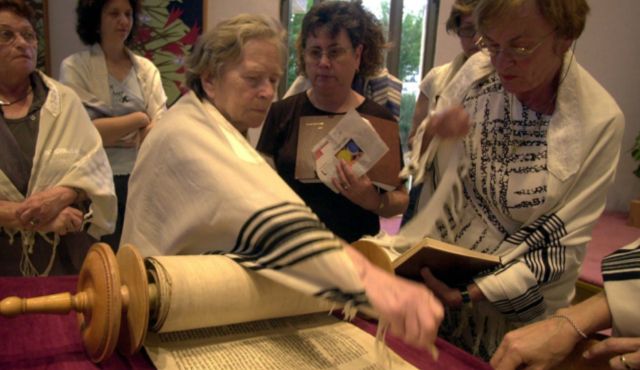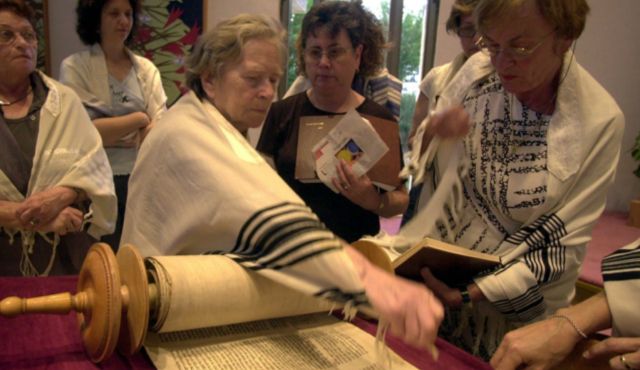In another move toward recognition of non-Orthodox Jewish movements, the Religious Services Ministry announced Thursday that it plans to abolish the institution of state-appointed neighborhood rabbis. Instead, financial support will be given to  communities that request it for rabbis of their own choice, including non-Orthodox ones.
communities that request it for rabbis of their own choice, including non-Orthodox ones.
The plan was unveiled in a brief submitted to the High Court of Justice Thursday in response to a petition by the Reform and Conservative movements and several of their community rabbis. The petition had demanded these rabbis receive a salary from the state, just as Orthodox neighborhood rabbis do. It also asked that the city of Jerusalem reserve at least two of its neighborhood rabbi positions for non-Orthodox rabbis.In another move toward recognition of non-Orthodox Jewish movements, the Religious Services Ministry announced Thursday that it plans to abolish the institution of state-appointed neighborhood rabbis. Instead, financial support will be given to communities that request it for rabbis of their own choice, including non-Orthodox ones.
In its response, the state asked the court to postpone hearing the case to give it time to implement a planned reform of religious services. Under this reform, positions for neighborhood rabbis who are currently state employees will first be reduced from the current 157, and eventually abolished altogether. Instead, money will be given directly to communities to hire rabbis of their own choice.
The ministry is working on drafting criteria for awarding this funding, the brief said, and these criteria will be “independent of which Jewish denomination the relevant community belongs to.”
The document noted that in any case, no new neighborhood rabbis have been hired in the last decade. However, no decision has yet been made on what to do with the 157 existing rabbis. “At this stage, the general intention is to transfer the currently serving neighborhood rabbis to other posts in the religious councils,” it said, noting that about 100 of them already have second jobs in such positions.
The institution of neighborhood rabbis was harshly criticized in the 2009 State Comptroller’s Report, which said these rabbis were appointed without the ministry having “examined the religious needs of neighborhood residents or defined what the job of neighborhood rabbi entails [and] the basic requirements that derive from this.”
Rabbi Gilad Kariv, executive director of the Israel Movement for Progressive Judaism, welcomed the ministry’s initiative.
“For years, the Reform Movement has sought to advance a community model of religious services, in which these services are supplied by independent communities on a voluntary basis rather than by government agencies,” he said. “The ministry’s announcement is an important step toward advancing this model.”
This is the second bombshell launched this month by Religious Services Minister Naftali Bennett and Deputy Minister Eli Ben Dahan, both of the Habayit Hayehudi party. Earlier, they announced plans to reform marriage registration by allowing couples to register anywhere they wish, thereby forcing municipal rabbis to compete for their business rather than forcing them to register in their own city. This reform, however, is currently being held up by Justice Minister Tzipi Livni.
by Yair Ettinger for Ha’Aretz

